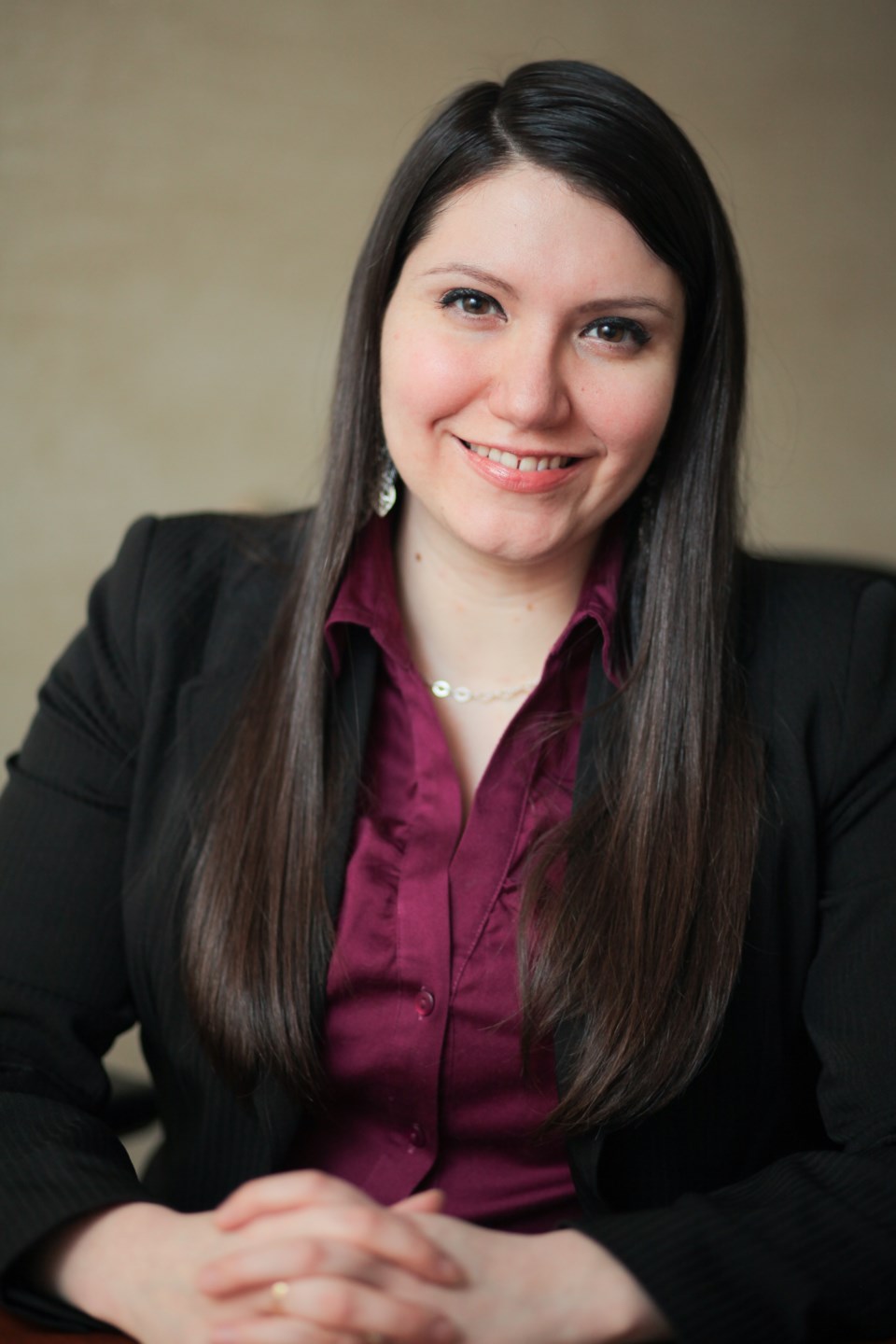Christine Conway is using her personal and professional experience to help others live a debt-free lifestyle.
Conway, past president of the New Westminster Chamber of Commerce, is a financial advisor at Braun Financial Services in New West. Conway is also the author of the newly published book, The Debt-Free Lifestyle, which aims to help Canadians deal with the challenges around housing, affordability and preparing for a comfortable retirement. Conway tackles topics like “big decisions” and “budget decisions” as a way of budgeting and suggests ways homeowners can save “a ton of money” on their mortgages based on the amortization schedule.
Moving to the Lower Mainland from Winnipeg in 2008 was a bit of a financial shock for Conway and her husband, who wanted to buy a home. Despite the high cost of housing, they’ve managed to buy a home in Surrey.
The Debt-Free Lifestyle is available at Black Bond Books in Royal City Centre, a number of small, independent book stores and at Chapters, Indigos and Coles locations from coast to coast. Here’s an edited version of our interview with Conway.
Q: As a financial planning professional, what are people telling you?
A: In the office, every time someone new came to see us they’d want to talk to us about one of two things – the first one was their debt and the second one was retirement. They were saying, I’ve got $20,000 in consumer debt – the average across Canada is $21,600. They are saying I’ve got this mortgage; With interest rates so low a ton of them had refinanced so when that happened, for a lot of them it was a good move because they are paying less interest, but the choice was between do you pay more now and increase your payment amount or do you extend the time to pay? Almost everybody that I’ve seen has chosen to extend the time to pay so now they’re facing going into retirement with a mortgage.
Q: Interest rates have been low for a number of years so people have been able to take on mortgages they may not have qualified for in the past. What does that mean to those people?
A: When interest rates go up, their payments are going to go up – and a lot. I have done some historical simulations – it’s hundreds of dollars, depending on the size of your mortgage. It’s going to be a huge, huge problem coming up. We have found with people’s budgets, they are really, really tight as it is. Ipsos Reid, a major polling agency, earlier this year said 48 per cent of Canadians that they polled were within $200 a month of not being able to pay all their bills. Think about that - $200. One minor rate increase could put a ton of people in serious financial strain.
Q: What makes your book different from other financial planning books?
A: Mine is hand’s on. My book is all about what we, my husband and I, have actually done. We put over $150,000 towards our debt in six years – that’s living in Metro Vancouver. When we did that our income was right at the median, so right in the middle of what Canadians made. I was making $40,000 at the time; my husband was making $38,000. We were making $78,000 a year – the median number in 2011 was $76,000. Even on those salaries, I believe if people follow some of the things that I have set out, they can make the choices that will lead to huge savings. I believe anyone can do this.
Q: For folks who are in debt, can they can get out of debt?
A: I believe so. One hundred per cent. They just need a better way of organizing their finances. I have a whole chapter in there about something that I call ‘the simple budget’. It’s 15 minutes to do. You do it every single time you get paid and it’s a completely different way of looking at budgeting. It’s done on a needs basis. Instead of saying, I’ve got $100, I’m going to throw that on my debt, it’s completely driven by what’s going on in your life at the time. It’s a quick little calculation that anybody can do. It takes 15 minutes to do and it really starts to show people where their money is going and it lets them make proactive decisions every single paycheque. That’s how we did it. That’s exactly how we got to our $150,000, plus not on crazy good salaries.
Q: What has being debt free meant for your lifestyle?
A: It just means that you are ready for anything. Now, we are not worried about what happens when interest rates go up because our debt is quite a bit lower. …Getting my debt paid earlier, I’ve saved a ton in interest costs, but also I’ve freed up time so I can comfortably retire one day and not leave it all to chance.



